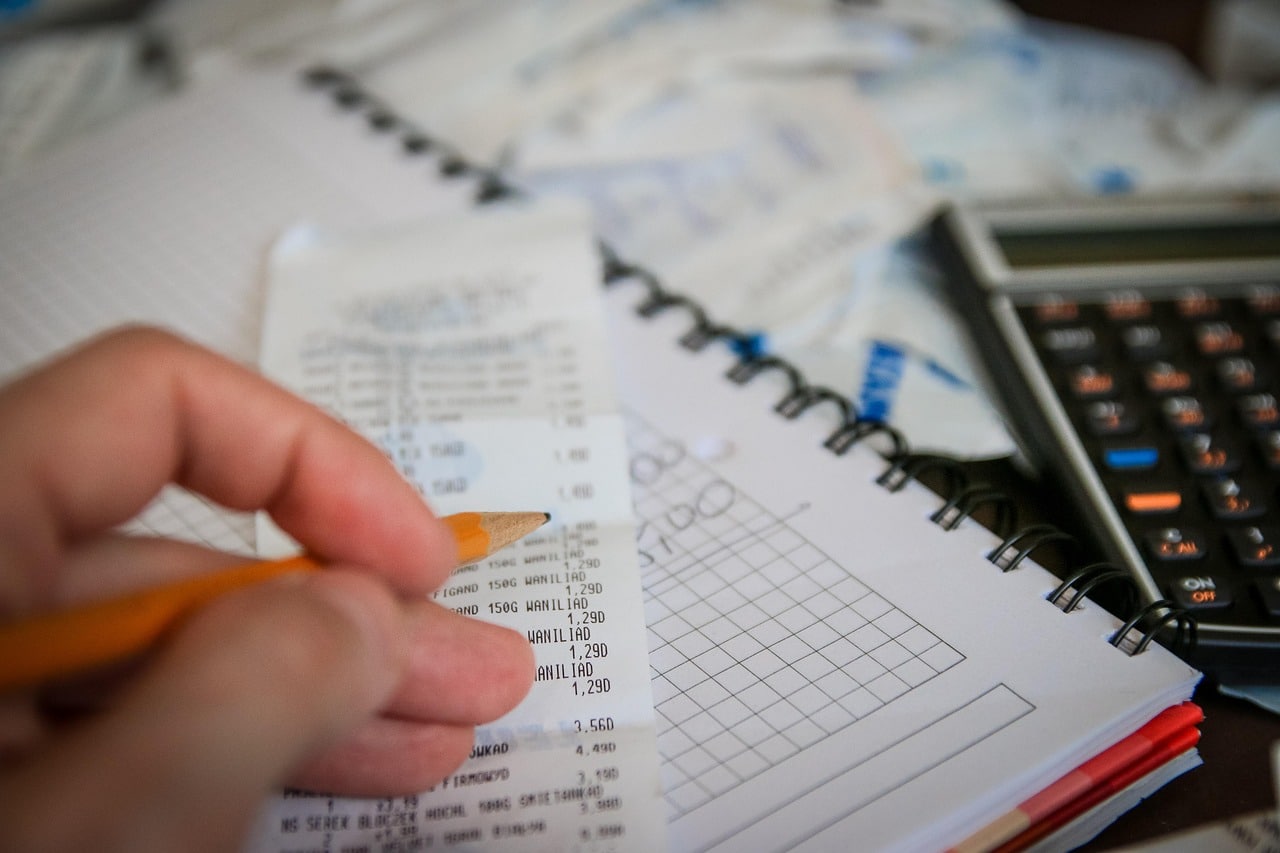Financial Resilience: Your Guide to Making Ends Meet Without Government Stimulus Support

Imagine sitting at your kitchen table, surrounded by bills. It’s a familiar scene for many Americans, especially after COVID-19 hit. Before the pandemic, financial survival was tough, with 27% unsure where to find $2,000 for an emergency1. Now, with shaky government stimulus support, financial security seems even harder to achieve.
Maybe you struggle with monthly budgets or feel overwhelmed by debt. Perhaps you’re not saving for retirement1. These challenges show that emergency planning isn’t optional—it’s essential for financial resilience. It comes down to learning, planning, and being adaptable.
How can you prepare for financial uncertainty? Start with becoming educated. Financial literacy saw a slight increase from 49% to 52% between 2017 and 2020, but it’s still not enough1. African-Americans and women, in particular, face greater financial risks, with many affected by this instability1.
During the pandemic, U.S. unemployment soared to 14.7%. This highlighted many people’s precarious finances1. While FEMA’s support post-March 2024 offers help, it’s not a complete solution2. True stability comes from learning about finances, turning hopes into realities.
Financial resilience isn’t just about your assets; it’s about how you manage them. Let’s delve into essential steps for emergency planning. With the right strategy, you can create your own safety net for the future.
Key Takeaways
- Emergency financial planning is crucial for building financial resilience in the absence of government stimulus support.
- Understanding your financial vulnerability is the first step towards financial stability.
- Knowledge is power: A small increase in financial literacy can make a significant positive impact on your economic well-being.
- Disparities in financial fragility exist, and education can help bridge these gaps, fostering resilience across demographics.
- With unemployment rates having spiked sharply during the pandemic, personal financial planning has never been more essential.
- FEMA’s updated support systems can aid survivors of disasters but personal emergency funds remain indispensable.
- Investing in financial education is not just about immediate needs – it’s about laying the groundwork for long-term financial security.
Understanding Financial Vulnerability and Resilience
Today’s economy is always changing. Knowing how to manage financial crises and understanding economic stability is key. This helps protect against unforeseen financial troubles.
Financial Literacy as the First Line of Defense
Knowing about finance helps you see the risks and learn about debt. People who know more about finances tend to avoid getting into too much debt. They also stay away from costly loans3. Learning more about finance can help you handle money troubles better.
Understanding financial resilience in different groups is crucial. It’s important to have financial education that fits everyone’s needs. This helps everyone be financially healthy4.
Demographic Disparities in Financial Fragility
Different groups face different financial challenges. For example, low-income families often have only a little saved up3. Helping these communities get ready financially can lessen the blow of money problems.
Research shows factors like age, race, and income affect financial stability3. This shows why it’s important to have financial education that targets specific needs.
The Impact of COVID-19 on Economic Stability
The pandemic changed the economy a lot, making more people unemployed. It showed why knowing about finance is important to survive economic changes.
Learning from the pandemic can help us prepare for future crises. It’s not just about managing our money. It’s also about helping those in need during hard times5.
The table below shows how financial knowledge varies among different groups. It highlights why education on finance needs to be specific:
| Demographic Group | Financial Literacy Rate | Potential for Financial Vulnerability |
|---|---|---|
| Low-Income Families | Low | High |
| Average American Household | Medium | Medium |
| Individuals with Higher Education | High | Low |
Recent global events have shown how crucial financial knowledge is. It helps create fairness and strength in the economy. With the right skills and knowledge, you can deal with financial crises confidently.
Emergency Financial Planning: Strategies for Uncertain Times
Having an emergency fund plan is crucial, especially in uncertain economic times. Making quick changes to your finances can make you more stable against unexpected financial problems.
Starting an emergency fund is a main part of financial contingency planning. It’s wise to save money to cover three to six months of expenses to protect against surprise costs6. With many people beefing up their emergency funds during shaky times, being proactive is key to stay financially secure7.
It’s also important to review and adjust your budget regularly. This helps you keep up with financial changes. Look into combining debts or refinancing to control payments better in these times6. Sadly, many people put off planning their finances when times are hard, showing the need for better budgeting for emergencies7.
Furthermore, earning extra money from freelance or part-time work can strengthen your finances. Almost half of people in a survey said they’ve thought about or started side jobs to earn more during tough times7. Having different sources of income is not just extra padding but an important part of a solid emergency fund plan.
Don’t forget about having enough insurance and keeping up with long-term savings like retirement funds, no matter the economy. Many don’t realize how important full insurance coverage and consistent saving are for their future finances6.
Learning and using these tips can really help reduce financial worries. The aim of emergency fund planning and financial contingency planning is to not just get through tough times, but to do well during them.
Building Your Personal Economic Stimulus
In these tough times, making your own economic plan is a must. It’s your way to fight back financially. By learning to budget during a crisis, saving for emergencies, and spending wisely, you build a strong base. This base helps you through hard times and leads you towards being financially stable.
Crisis Budgeting Techniques
Good crisis budgeting means knowing what you must spend on and what you can skip. You prioritize urgent needs like your home, bills, and food. By spending less on things like movies and fancy items, you can save more. This way, you make sure your money goes to what’s truly important.
Creating an Emergency Fund: Steps to Financial Preparedness
Starting a savings fund for emergencies is key to protecting yourself against money troubles. Experts suggest saving money that can cover your needs for three to six months. Yet, with COVID-19, it’s smarter to save for eight months or even a year8. Saving a little every week can help you grow this fund slowly, making it less of a burden8.
Mindful Spending: Prioritizing Needs Over Wants
Being careful with how you spend money is crucial for your financial health. It means spending on what you truly need, not just what you want. This helps you avoid wasting money and can boost your savings. Thinking deeply before buying anything ensures your spending helps your financial goals.
Taking these steps to secure your finances prepares you for tough times. It also gives you the power to control your money with confidence. The aim of having a personal economic plan is to have a safety net. This keeps you financially safe when things get rough.
Conclusion
Reflecting on our guide’s lessons makes one thing clear: having an emergency fund is crucial, not just advised. The COVID-19 pandemic showed us the tough spot of not having enough saved91011. It’s wise to save three to six months’ worth of expenses for emergencies91011. If your job’s income changes a lot, think about saving even more9.
Start by setting achievable goals for your emergency fund. Consistently add money, setting up automatic transfers helps avoid the urge to spend instead11. Look into high-yield savings accounts like those from American Express and Ally Bank. They offer good returns and are easy to get to, making them perfect for emergency savings11. Keep your emergency money separate from other savings to ensure you don’t use it for everyday expenses10.
But saving money is only part of the story. You also need to learn more about managing your money and spend wisely. Making smart choices now can help you stay secure financially in the future. Just like states manage federal aid to avoid budget issues, use these ideas to keep your finances strong.
FAQ
What is financial resilience and how can I achieve it?
How can financial literacy serve as a defense against economic instability?
Why are there disparities in financial fragility among different demographics?
What effect did COVID-19 have on financial stability?
What are some strategies for emergency financial planning during uncertain times?
How can I build my personal economic stimulus?
What are the steps to creating an emergency fund for financial preparedness?
Why is mindful spending crucial for financial resilience?
How does financial self-efficacy impact emergency financial planning?
Why is it important to have an emergency savings buffer beyond government stimulus?
Source Links
- Building up financial literacy and financial resilience – https://www.ncbi.nlm.nih.gov/pmc/articles/PMC7393029/
- Individual Assistance – https://www.fema.gov/assistance/individual
- Using Factor Analysis to Assess Financial Vulnerability in the United States – https://gflec.org/wp-content/uploads/2022/03/WP2022-1_Hasler-Streeter-Valdes.pdf
- PDF – https://www.nado.org/wp-content/uploads/2014/01/FINAL_Workbook.pdf
- PDF – https://fic.tufts.edu/wp-content/uploads/Increasing-Financial-Resilience-2009.pdf
- How to Create a Financial Plan for Uncertain Times – https://www.tombiblelaw.com/blog/2024/july/how-to-create-a-financial-plan-for-uncertain-tim/
- How to Approach Financial Planning During Uncertain Times – https://www.fscb.com/blog/financial-planning-during-uncertain-times
- Financial Fundamentals — Emergency Funds – https://www.affiancefinancial.com/news/financial-fundamentals-emergency-funds
- The Importance of Emergency Funds — Charles James Financial Planning – https://www.charlesjames.com/blog/the-importance-of-emergency-funds
- The Importance of Building an Emergency Fund – https://www.linkedin.com/pulse/importance-building-emergency-fund-sahil-rana
- Building Financial Resilience: The Vital Role of an Emergency Fund – https://www.pwa.org/blog-01/building-financial-resilience-vital-role-emergency-fund








